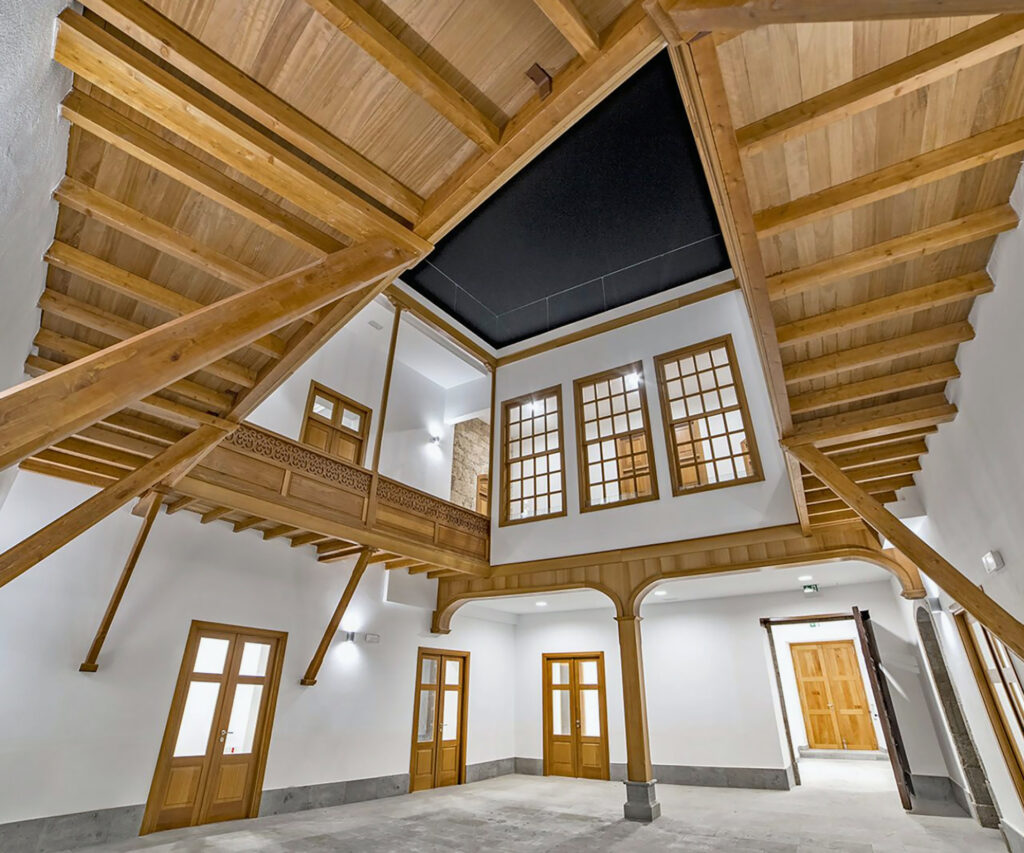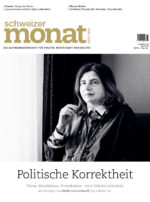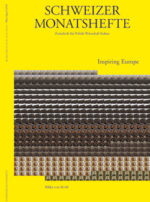
«Europe is decaying»
The old continent has become over-regulated and lacking in innovation, says the economist Gabriel Calzada. He is fighting this by founding a new university.
Lesen Sie die deutsche Version hier.
You have founded a new university, which has finally opened after a long struggle: the Universidad de las Hespérides in the Canary Islands. How does it work?
It’s a hybrid university. While we have physical campuses with lots of activities on them, you can follow everything you need for your degree online too. We give our students the flexibility to come to the campus or to stay at home.
How many students are we talking about?
For this first year, it’ll be around 180 students. 12 percent of them are from the Canary Islands. In our first cohort, we have students from twenty-one countries. Mainly they are from Spain and Latin America, because we have Spanish programs. But we recently managed to accredit our first English program, a master’s degree in economics. It’s going to be launched next year.

It took you sixteen years to open the university due to massive resistance from the government. How did this resistance look like?
In Spain you need to pass a law in order to open a new university. Hence, if the politicians oppose your project, you face a problem. Our goal was to set up a rather original university that pays greater attention to learning than to teaching and provides what a curious academic individual would be privileged to experience. Our university takes its inspiration from the liberal arts, the core curriculum of the classical liberal tradition, and does not accept public funds. When we told politicians and bureaucrats about these qualities, which are still part of our university today, they didn’t like it. They threw everything at us, from skeptical reactions to total opposition.
«Our university takes its inspiration from the liberal arts, the core
curriculum of the classical liberal tradition, and does not accept public funds.»
For example?
When we sent our programs to the public authorities for approval, we had some courses on public choice theory in economics. They sent it back and refused to permit it, arguing that public choice is not something that undergraduate students should learn. They claimed the same regarding Law and Economics. Or they said: «Oh, it’s online? How can it be online, because surely you will need a sports center?» When we answered that we could give a Nintendo Wii to our students and a personal trainer, they would start laughing right in front of us. They even warned us, we’d have nobody to pick up our garbage, if we dared to open the university.
But then it finally happened?
Four years ago, the Parliament of the Canary Islands approved the university. From that day it took us three and a half years until we received the final permit. In between, we had to go through accreditation and get everything in place, set up the buildings, the campuses, the platforms, the systems contracts, the professors’ contracts.
That should all amount to a huge paper trail, and to lots of money spent on lawyers, am I right?
The quantity of paper we expended to satisfy the authorities was obviously so great that, at some point last year, we decided to determine how many papers we had sent to the administration. We found that it added up to approximately 105,000 pages with 42 million words written on them. If you piled them up on top of each other, one paper at a time, you’d eventually end up with a tower twenty-one meters high, made entirely of paper. Andrew Morriss, the former Dean of the Texas A&M School of Innovation, suggested that we should make a sculpture out of these 105,000 papers, to abstractly represent bureaucracy, and place it in front of our campus.
Shouldn’t the university be welcomed by the government as a societally beneficial private initiative?
In our case, the question of whether the university ought to exist should be a no-brainer, since it doesn’t require public funds, no subsidies or anything like that. Universities, however, have become part of the government’s tools of control over society. Ever more governments are beginning to comprehend that universities are part of what generates culture in society, and they want to control what groups end up establishing them. Then there’s the problem of incumbents, i.e. crony capitalism. So those who already operate a university form ranks with the government in order to erect very high entry barriers that are almost impossible to overcome.
«Ever more governments are beginning to comprehend that universities are part of what generates culture in society, and they want to control what groups end up establishing them.»
Did you have any support despite the opposition?
In Spain, you should present signatures of those who back your programs and projects that you put forward. Among our supporters we had Nobel Prize winners like Vernon Smith, or Mario Vargas Llosa, personalities from the political sphere like George Shultz, Ruth Richardson, Leszek Balcerowicz or Václav Klaus, also a lot of entrepreneurs and investors like Steve Forbes or Peter Schiff, and high-level academics like Barbara Oakley or Jerry L. Jordan. But to the politicians, it wasn’t good enough. It was incredible to see how the rules we were subjected to were completely arbitrary and subjective, how regulation can be expanded so much in order to allow them to conclude their evaluations of a proposed university as they please.
The motto of the university is «libre de aprender a ser libre». Why did you choose that motto?
Indeed, the motto is a play of words in Spanish saying that you’re free to learn, and that you can learn to live freely. It combines the two things we wanted to stress: the fact that this university is for curious minds who harbor academic curiosity, and the university’s mission which is to explore the role of liberty in personal and societal development. I think it also echoes our focus on entrepreneurship, which, along with finance and economics, is on the core curriculum. All of our students will therefore study entrepreneurship.
What do you expect to achieve?
Our dream is to contribute to a freer and more prosperous society by creating an online higher education institution rooted in the liberal educational tradition, of which Liberty Fund, Universidad Francisco Marroquín, and the Mont Pelerin Society are shining examples. We aim to offer courses designed for intellectually curious students, ensuring academic rigor while simultaneously fostering a vibrant student life in both our metaverse and in-person settings. We want to promote individual responsibility in a learning community open to free inquiry.
Are your grades accepted by the European Higher Education Area, are they internationally recognized?
Yes, our BAs and MAs are all accredited studies in the EU. The university and our programs have been accepted by the Spanish and European accreditation agencies, and as such the European Union recognizes them. The yearly price is around 3500 euros for undergrads and, depending on the program, around 6000 to 9000 euros for graduate programs.
These days you hear about students at traditional state universities on account of all the cancel culture, woke ideas, climate activism, and so on, taking place there. Might this become a problem you will have to deal with?
In 2012, we opened a business school in Madrid, which was much easier to set up than the university. Our students have been very engaged, far from practicing cancel culture, far from demanding safe spaces, and very far from claiming the right not to feel offended. On the contrary, they have been challenging each other and enjoying that aspect of challenging and being challenged. We trust the university is going to be similar.
Why do students who do not want to be challenged even exist?
Students who oppose open discussion and want to impose their views on other students have existed for many decades. They did not change, but the university did: those students and their authoritarian attitudes were not acceptable in the old days. Today, unfortunately, too many universities accept such attitudes that are inimical to inquiry and rigorous intellectual exploration of ideas. Some universities even encourage such censorious ideas and protect them against those who are curious and truly academic.
What are the reasons for these changes?
The university has become a sort of parliamentary organization over which professors have gained control. Once the professors have the control but not the ownership they act rationally, using the institutions to their own advantage, staying relatively away from the classroom by reducing the lecturing time, extracting resources for their own research hobbies, and establishing tacit “non-aggression agreements” with the students that lead to low academic rigor and inflation of good grades. In that environment, the professors believe they can then impose their own political ideas on all who stand beneath them in the university’s hierarchy and do what they want. The students are not seen by the professors as the costumers with their rights and responsibilities. It´s a mess. When you look back across the centuries and even decades to the beginning of last century, universities were never controlled by professors but by trustees or by owners.
You’ve lived in Guatemala City for many years, leading Francisco Marroquín University, and you’re now back for in Europe due to this university. What are the main differences between South America and Europe today?
Latin America, even with all its social problems, is much more dynamic than Europe. I also see several African countries fruitfully employing the dynamism that comes from their big aspirations and hopes, their positive attitudes towards the future and what can be achieved. On the other hand, Europe is decaying. When the Lisbon Agenda was agreed, politicians declared that in ten years they would transform Europe into the most innovative part of the world. Twenty-three years later, Europe is one of the least innovative, most rigid, inflexible, highly regulated parts of the world. It is guided top-down instead of bottom-up, and if we don’t see a big change in the coming years, Europe will continue to decay while innovation and prosperity will flourish elsewhere. I mainly see an attitude that is consistent with people who don’t think the future is going to be better than the present: nothing can be changed. And to do something new costs a lot, takes loads of energy, won’t be recognized as an achievement, and might get you labelled as a disruptor of how things are usually done. In reality, disrupting entrepreneurs are highly valuable of course. This is recognized in Latin America: as an entrepreneur there, you are respected by almost everyone in society. If you’re an entrepreneur in Europe, you’re regarded suspiciously.
What advice would you give an entrepreneur in Germany who is bullied and frequently disrespected by the media and those with societal influence?
You’re presenting a very complicated case because a person who has immovable capital and finds himself in that situation can only either sell that capital or get in touch with organizations that are part of the classical liberal tradition to try to change the situation, the mentality of the people, as well as the idea of responsibility in people generally. What Europe has ultimately lost is the idea of responsibility, viz. that one ought to be responsible for one’s actions and their consequences. We have become like little babies who think that we deserve everything from some sort of mythological wolf that will give us all kinds of food and shelter. If we don’t manage to change that, I don’t see any future for Europe. The lack of a concept of being responsible and proud of what you do, is the core of the problem for Europe. We are in time to revive that powerful positive idea.
«We have become like little babies who think that we deserve everything from some sort of mythological wolf that will give us all kinds of food and shelter.»











